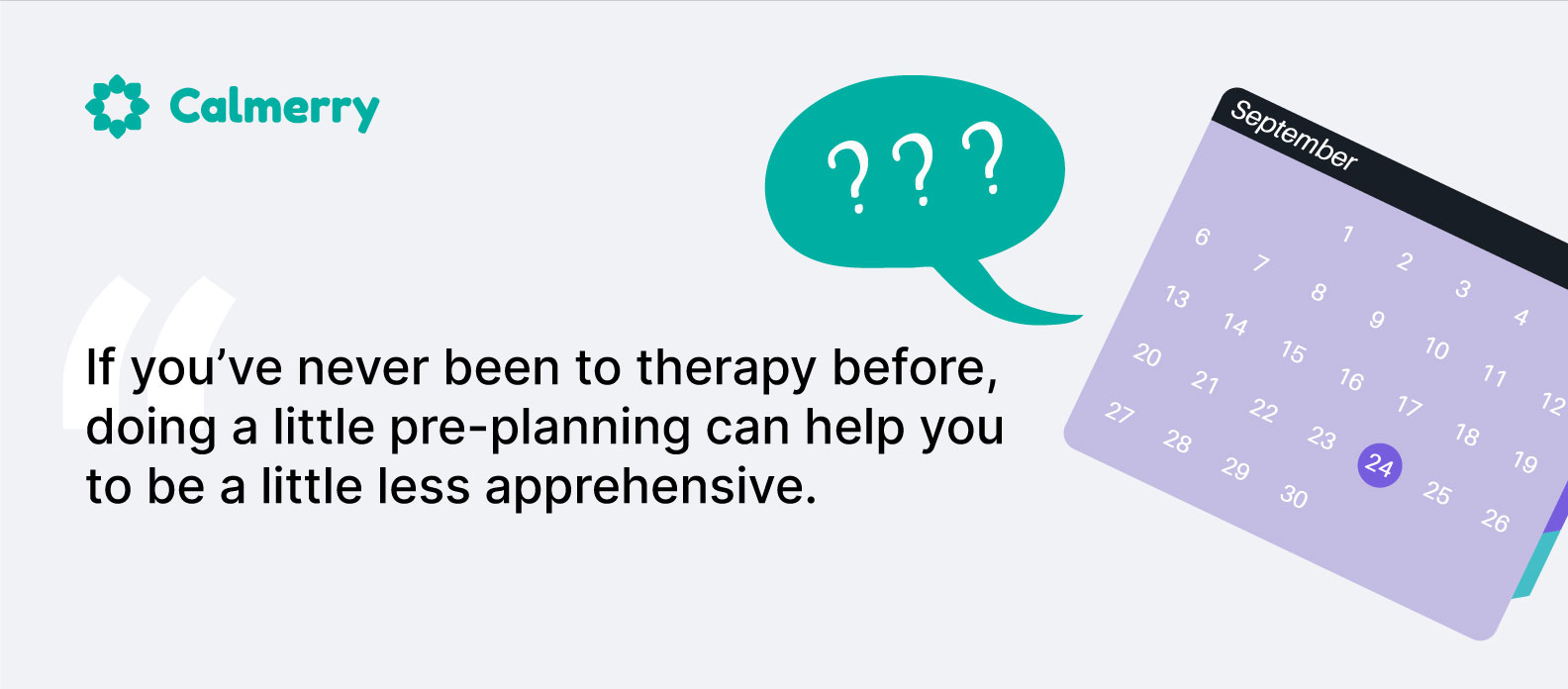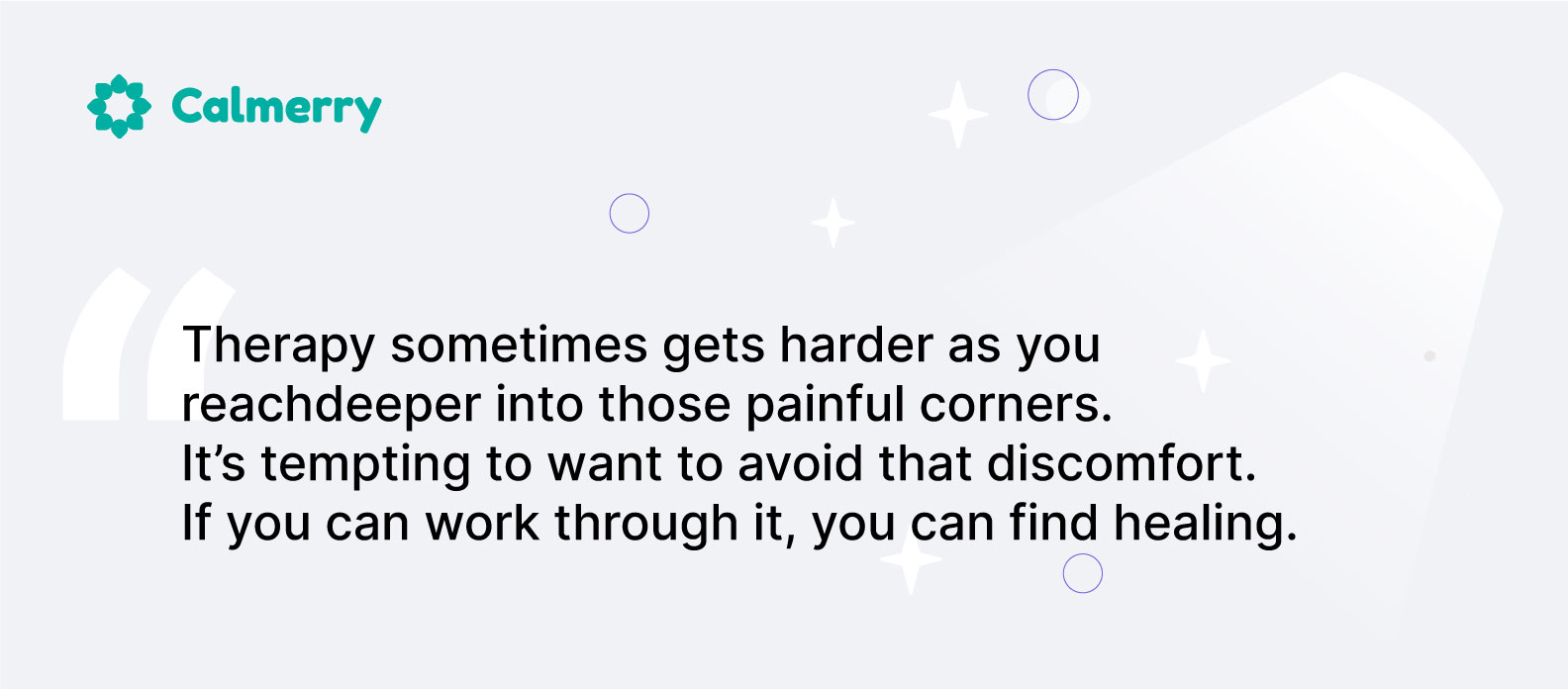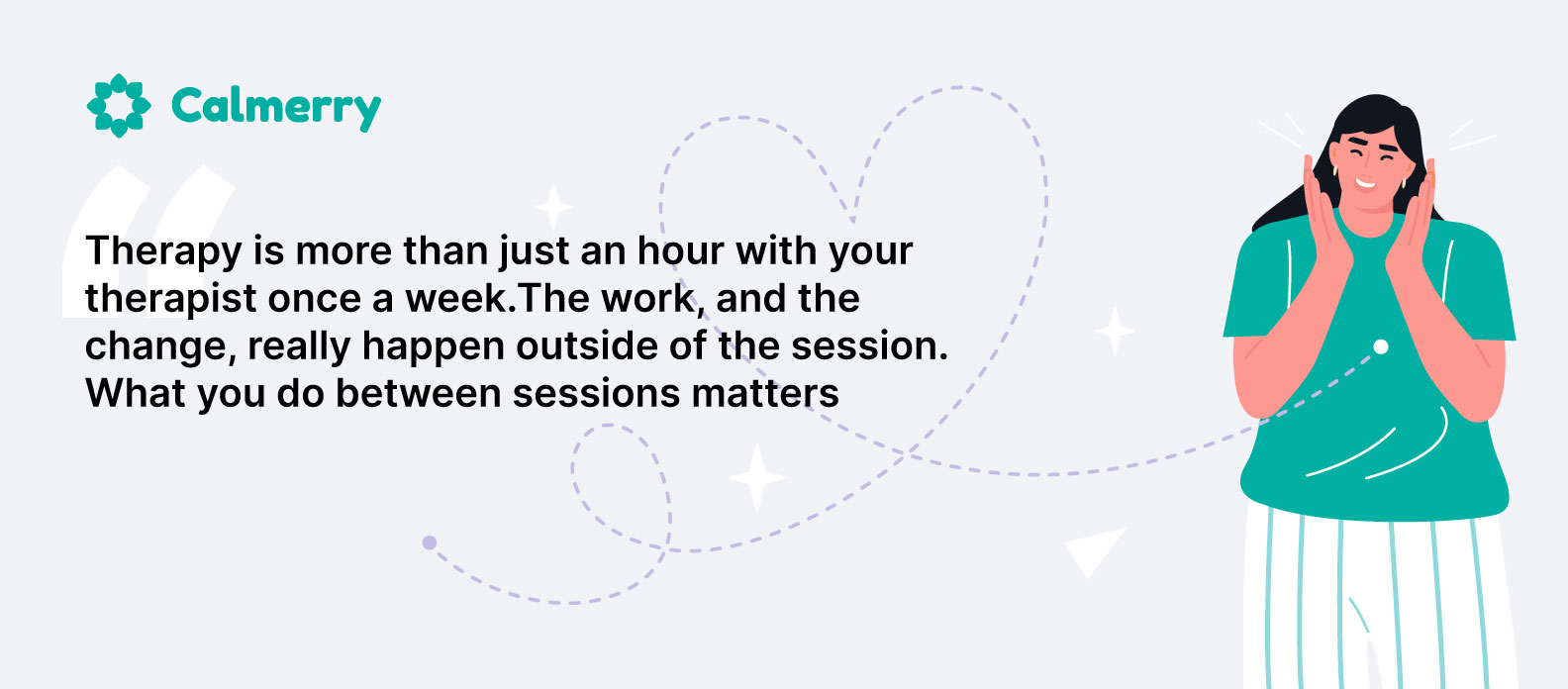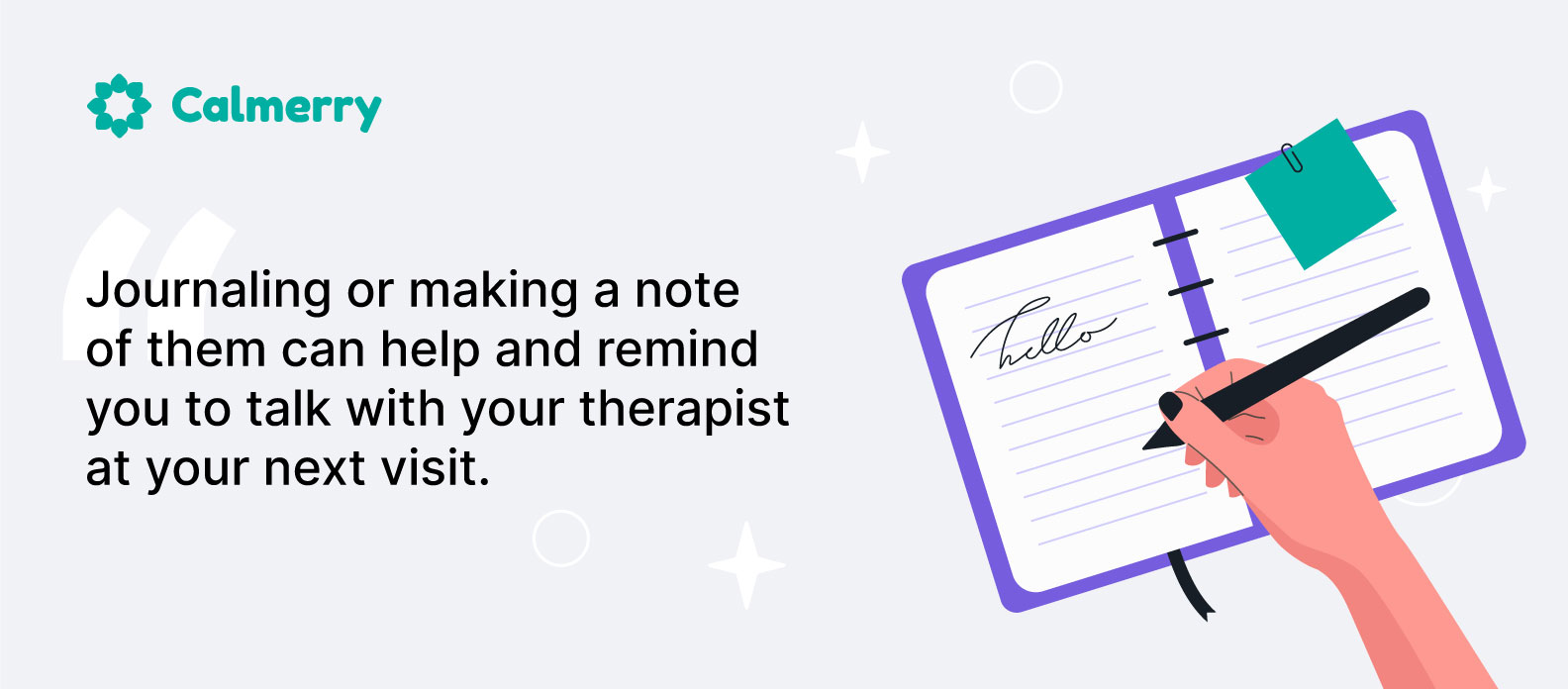10 Ways to Get the Most Out of Your Therapy Sessions

Making the decision to come to therapy is a huge step. It’s at once one of the hardest things you’ll do and one of the most satisfying things you’ll do. It’s satisfying because you can experience growth and healing. It’s hard because it takes a lot of emotional energy to face your challenges and find that path to healing.
Now that you’re ready to seek help, you might be wondering just what the experience will be like:
- What should I say?
- What’s going to happen?
- Will the therapist judge me?
These are all normal questions, especially for someone who may be new to therapy. A lot of people think that going to therapy simply means that you go, talk to someone, and magically, things get better.
The truth is therapy is more than just attending the therapy appointment. It is more than just “talking”. It’s about being engaged in the process. To help you prepare for your therapy experience, we’ve compiled a list of ten ways to get the most out of your therapy sessions.
Getting the most out of your therapy sessions
One important thing to know is that you are not in this alone. The therapeutic process is a dynamic that is created between therapist and client (you) where you work together to explore and work through the issues that bring you to therapy.
You have someone on the journey with you, but you are always in control of the process. It is up to you what you choose to bring to the process.
One other thing to know, therapy goes by lots of names, depending on a therapist’s training and approach to therapy. You might hear terms such as therapy, counseling, or psychotherapy, and it can be confusing. The terms are generally used interchangeably, and do not imply any kind of impairment or mental illness.
There are a number of different types of mental health professionals, each with a specific discipline and practice of mental health care. Which type of professional you need may vary based on your needs. For therapy, generally speaking, if your therapist is licensed to practice, you can rest assured that they are well-qualified to help.
1. Before you go
It might sound odd to think about preparing for a therapy session.

First, recognize that it’s normal to be a little anxious. After all, you’re about to meet with a total stranger and share some of the most intimate details of your life. No stress there, right?
Before you go, spend a few minutes thinking about why you chose to go to therapy. Here are a few questions to consider:
- What do you want your therapist to know about you? What helps you to be comfortable? Are you talkative or shy?
- What do you want to work on? Are you struggling with anxiety or depression? Are you trying to be more outgoing and confident? Dealing with past trauma?
- What do you hope to get out of your therapy experience?
- What are your fears or concerns about therapy? What do you want to know?
- What goals do you have for therapy and for your life? If you could envision being finished with therapy, what would that look like for you?
- What questions do you have for your therapist? (Yes, it’s ok to ask questions!)
These are a few of the many questions to consider. If it helps you, make a list or journal your thoughts on these. It will help you to be prepared for your visit. It’s also a great tool for between sessions when emotions or insights come up.
One other bit of housekeeping is to make sure that you have completed any paperwork that your therapist may need before your first session. If you are doing that, when you arrive, make sure you bring any documents you might need, like an ID or insurance card.
2. Show up
Once the appointment is made, you might feel nervous. You might even feel a little scared. You may be tempted to cancel your appointment.
Before you do, think about this: you made that appointment for a reason. That reason was likely because something was creating distress or pain. Nothing has changed between the time you scheduled and now to make the problem go away.
Showing up holds true whether you’re going to a first appointment or your tenth one.

There’s an old saying, “Nothing changes if nothing changes.” If you cancel, nothing changes. Instead of doing what you’ve been doing on your own, keep your appointment. Give yourself permission to see what could be. Consistency is the key to change.
3. Be honest
You might wonder what to talk about in therapy. Your therapist will help to guide you through that process. They may ask direct questions or ask you to share your thoughts about something.
If you’re not really sure of something, it’s ok to say so. Be mindful of avoiding a topic, not because you don’t know the answer, but because saying it out loud is uncomfortable.
Throughout the therapy process, you may be asked to share very personal, sometimes painful, experiences. It’s normal to want to avoid what hurts us, and you might be tempted to just not talk about it.
That’s a normal temptation, but here’s the problem: Your therapist can only work with what you share. Your therapist can’t just “know” something about you. To be effective, it’s important for your therapist to know the truth about what you’re experiencing.
One of the worries people sometimes have is that their therapist will judge them or be “shocked” by what they hear. Your therapist is not there to pass judgment on you or what you’ve experienced.
Your therapist is there to help you explore issues and find ways to help you find healthy ways of cope with your issues, whatever they may be. Give yourself permission to be authentically you.
4. Be open to change
It’s one thing to say, “I want to change.” It’s quite another thing to be open to it. Being open to change means that you are willing to be honest about what is happening in your life and open to looking deeper. Being open means that you’re willing to accept what is and willing to look at alternatives that might serve you better.
Sometimes, we can’t see our own experiences or patterns of behavior realistically. A therapist can help you explore your experiences and help you to gain insight into what’s happening. When you understand your issues, you can then consider alternatives that might work for you.
5. Give yourself grace
Therapy is a process that takes time and patience. There will be times when you’re feeling positive and accomplished. There may be times when you struggle. It’s a normal part of the process. Be kind to yourself and offer yourself some grace. It takes time to work through issues and find healing. As long as you’re still working, you’re doing fine.
Part of therapy is helping you to develop self-acceptance and compassion. Accepting that you are valuable and worthy of compassion and grace helps to improve your sense of self-acceptance and worth.
6. Do your homework
You might find yourself wondering what to do in-between therapy sessions.

It is likely that your therapist will ask you to do some specific things outside of the session, commonly referred to as “homework”. This isn’t your grade school homework, though.
Depending on what you’re working on and the therapist’s orientation, homework could be anything from journaling to mindfulness meditation to trying out a new communication skill.
The reason for homework is for you to learn to use what you’re learning in therapy. As you try new things, you can share feedback with your therapist, who cannot be with you 24/7. Homework is the secret sauce to making the changes you seek.
7. Expect to be uncomfortable
You’re going to be talking about some very personal and, maybe painful, experiences. This kind of conversation may be quite uncomfortable and difficult to share.
Part of healing and growth is being able to look at your experience as it is. Once you do that, you are in a stronger position to make decisions that are healthy and healing for you.
Sessions can also leave you with a lot of thoughts and feelings that you’re not sure what to do with. Expect that you might have feelings or insights come up after the session.

If you find that you’re experiencing a lot of emotions between sessions, talk with your therapist about ways to manage them.
8. Set boundaries
Your therapy is yours and yours alone. It is your time to share whatever you choose with your therapist in a safe, private space. What you and your therapist discuss is private.
Sometimes, well-meaning family or friends may ask you about what you’re working on in therapy. Choosing to share isn’t always in your best interest. Sometimes, even the most well-intentioned loved one can give advice or criticism that is not helpful in your healing.
This is one of those times when it is ok to put yourself first and keep that boundary firmly in place. You are not obligated to share just because someone asks.
9. Share your concerns
Every person has preferences, things that work for them and things that don’t. Your therapist may ask you to try something that just doesn’t work for you. That’s ok. There are lots of ways to accomplish a task.
Your therapist has lots of techniques and strategies to use. For example, you may prefer reading a book to listening to one in audio format. You might prefer drawing to journaling. It’s ok to share your preferences with your therapist.
The same holds for other aspects of your therapy experience. You may have preferences for scheduling or for the way you wish to be addressed, or something else. It is ok to ask for what you need.
10. Choose the therapist that works for you
Finding the right therapist is like finding the right pair of shoes. Sometimes, it takes trying a few on. Therapists are no different. Each one has their own personality and approach to psychotherapy, just like you do.
You may find “the one” on your first try. If not, that’s ok. You might go on a few first appointments until you find the one that you vibe with. Remember, part of the therapeutic process is that therapist-client connection. This is another one of those times when you need to put your needs first.
If you don’t find “the one” right away, keep trying. Find the therapist that fits. And don’t worry about hurting a therapist’s feelings. They all understand the need for a good fit and want that for you, too.
Choose the setting that works for you
The last few years have seen a huge change in the way people access healthcare, and mental health care is no exception. You can still go to an office and sit with a therapist face-to-face. You now have the option of seeing a therapist online through secure video platforms.
In fact, online therapy has become the preferred way of engaging in therapy for millions of people, especially since the pandemic. You can see your therapist from the comfort of home, on your schedule, and without having to travel.
And it’s effective. Online therapy has been shown in research to be just as effective as face-to-face therapy for treating mental health issues such as anxiety disorders, depression, and more.
With all the therapy options and approaches, you might be wondering, which one is the best? At Calmerry, we believe the best therapy option is the one that’s right for you.
online therapy
live video session



